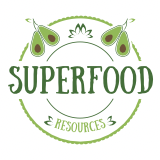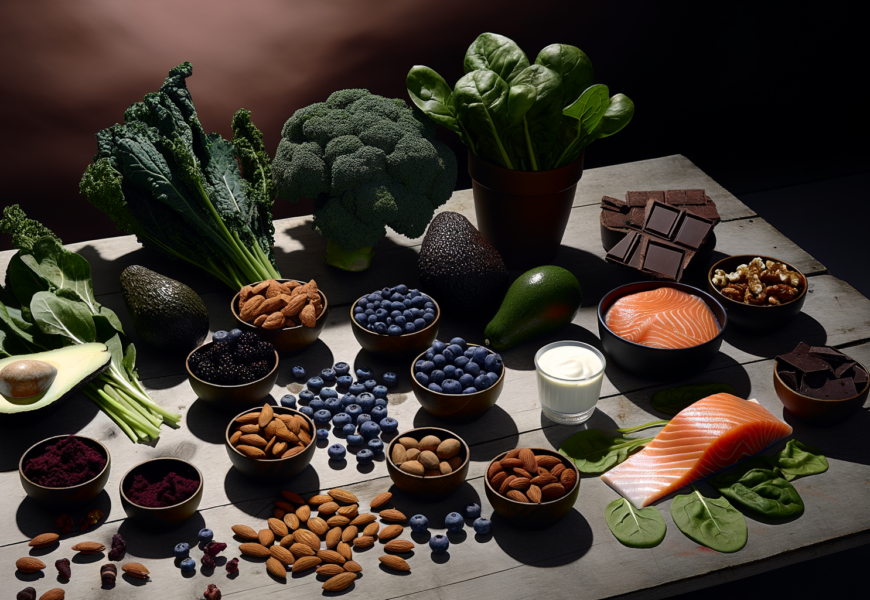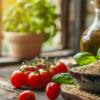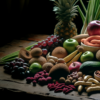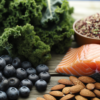In today's fast-paced world, maintaining optimal health and nutrition is more crucial than ever. Enter superfoods—nutrient-rich foods acclaimed for their profound health benefits. By integrating superfood profiles into your diet, you can easily enhance your well-being, boost your energy levels, and support your body's functions. Let's delve into these dietary powerhouses and discover the magic they offer.
What Are Superfoods? Understanding Their Nutritional Impact
Superfoods are a category of foods celebrated for their exceptional nutrient density and health benefits. Generally plant-based, they can also include some fish and dairy, all offering various phytochemicals, vitamins, and minerals that contribute to our overall health. Historically, many cultures have hailed certain foods as vital for long life and vitality. For instance, ancient civilizations consumed chia seeds and quinoa for energy and endurance due to their impressive nutrient profile.
These foods often contain high levels of antioxidants, crucial for combating oxidative stress and reducing the risk of chronic diseases. Their rich composition of essential nutrients like omega-3 fatty acids, vitamins, minerals, and dietary fiber defines their "super" status. Superfoods are also known for their anti-inflammatory and immune system support, making them invaluable in a balanced diet.
Top Superfoods and Their Unique Benefits
Blueberries: Known for their potent antioxidant benefits, blueberries are small but mighty. They contain significant amounts of vitamin C and K, fiber, and manganese, which benefit heart health and brain function. These berries are perfect as a snack alternative or added to superfood smoothies for a nutritional boost.
Kale: A staple in the world of leafy greens, kale is packed with vitamins A, C, K, and several B vitamins. Its high fiber content promotes digestive health, while antioxidants support detoxification and inflammation reduction. Kale is versatile, easily added to salads or smoothies, offering a satisfying bite in every mouthful.
Quinoa: Ideal for those looking for gluten-free superfoods, quinoa is a complete protein source, providing all nine essential amino acids. Rich in dietary fiber, B vitamins, and iron, it helps in maintaining energy levels and supports weight management. Easily cooked, quinoa can be integrated into various meals, from breakfast bowls to dinner entrees.
Though availability can vary, most superfoods are accessible year-round, sourced from both local and international markets. Seasonal offerings ensure freshness and optimal nutrient retention, making shopping plans aligned with seasonal superfood options a wise choice.
How to Incorporate Superfoods into Your Daily Diet
Adding superfoods to your daily diet doesn't need to be daunting. Start with simple recipes such as a blueberry smoothie for breakfast or a kale and quinoa salad for lunch. Experiment with superfood powders added to juices or baked goods to enhance their nutritional content. Here are some tips to make the transition smoother:
- Select and Store Wisely: Choose organic superfoods when possible to avoid pesticides. Store them correctly; berries in the fridge and grains like quinoa in a cool, dry place.
- Overcome Barriers: If budget is a concern, focus on affordable options like frozen berries or buying in bulk. For the skeptical, gradually introduce superfoods into familiar dishes.
The Science Behind Superfoods: Evidence-Based Benefits
Numerous studies corroborate the health benefits of superfoods, debunking common myths that label them as mere trends. Research supports that antioxidants found in berries, for example, significantly reduce oxidative stress, a factor in aging and many diseases. Expert opinions underscore the importance of a varied diet rich in these foods for holistic nutrition and longevity.
However, it's essential to recognize that no single food is a cure-all. Superfoods work best when part of a balanced diet comprising a wide range of whole food sources. Integrating both ancient grains and modern food innovations is key to optimizing health.
Superfoods and Sustainability: Making Environmentally Friendly Choices
With growing awareness of environmental impacts, choosing sustainable superfoods is imperative. Some superfoods, like quinoa, require specific growing conditions, making local sourcing challenging. Opting for local produce where possible reduces carbon footprints and supports local economies. Moreover, sustainable farming practices ensure that the cultivation of these foods is not detrimental to the environment.
The debate between local versus imported superfoods often hinges on accessibility and nutritional quality. While imported foods might be necessary for variety, prioritizing local options aligns with eco-friendly eating habits.
Incorporating superfood profiles into your diet is a rewarding journey toward better health and vitality. These natural powerhouses offer a simple yet effective way to address nutritional deficiencies, support bodily functions, and enjoy a more energetic lifestyle. Dive into the world of superfoods and start transforming your health today. Ready to make a change? Begin by adding one new superfood to your meals this week and feel the difference!
By consciously choosing nutrient-rich and environmentally friendly options, you're not only boosting your health but also contributing to a sustainable future. Engage with these superfoods and reap the benefits of a vibrant, healthier lifestyle. Consider exploring one of the mentioned recipes, or craft your own combinations, paving your path to well-being and longevity.
